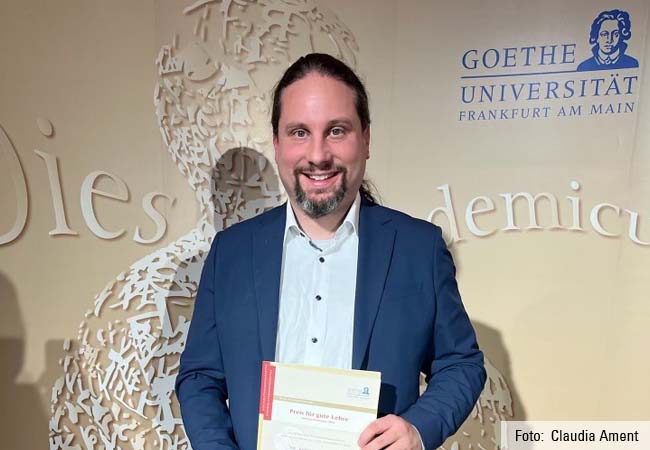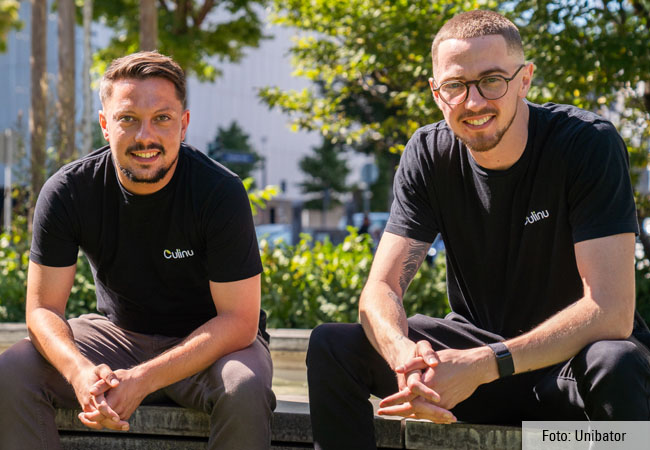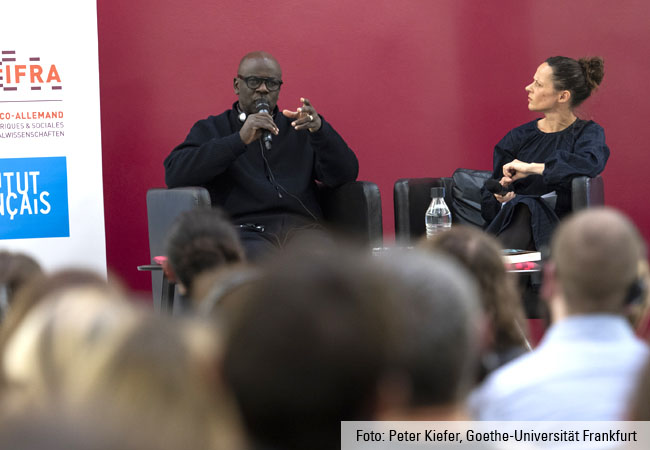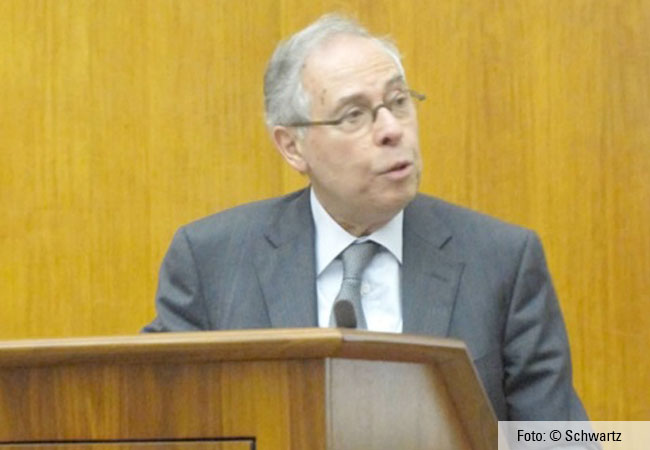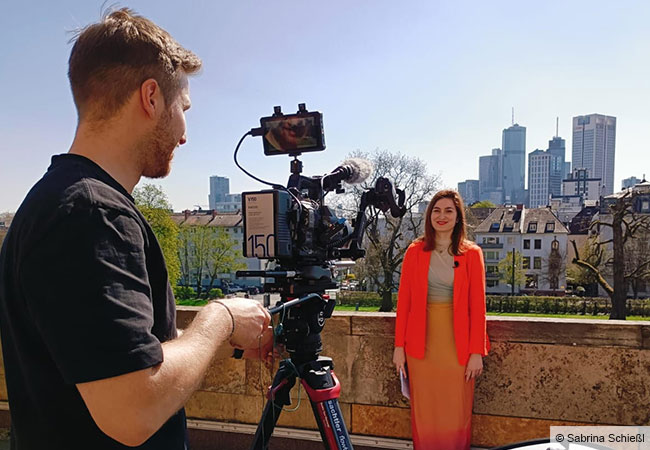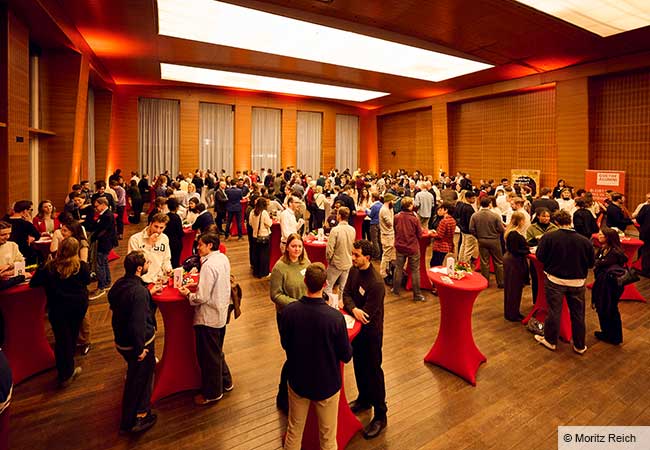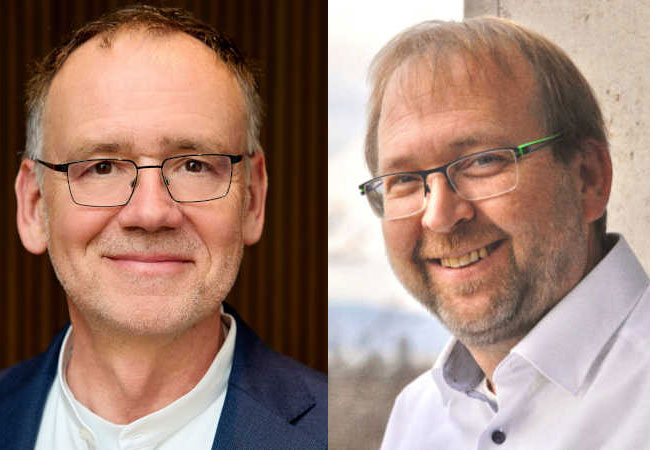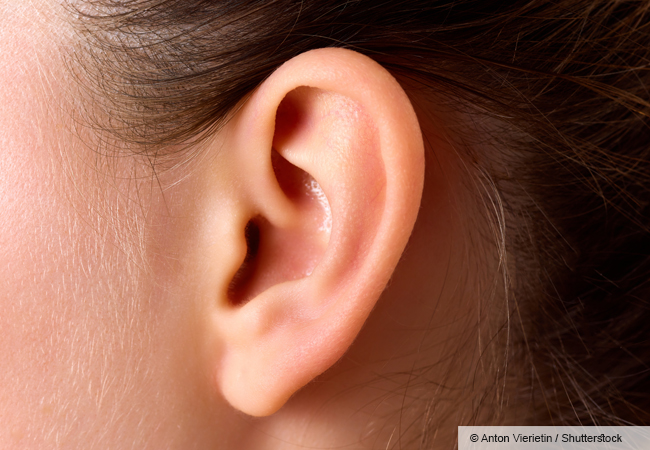The new Monika Schoeller Lectureship is intended to raise awareness of literary translation as an art form. In addressing theory and practice, Uljana Wolf, the first incumbent, looks back to the Romantic period.
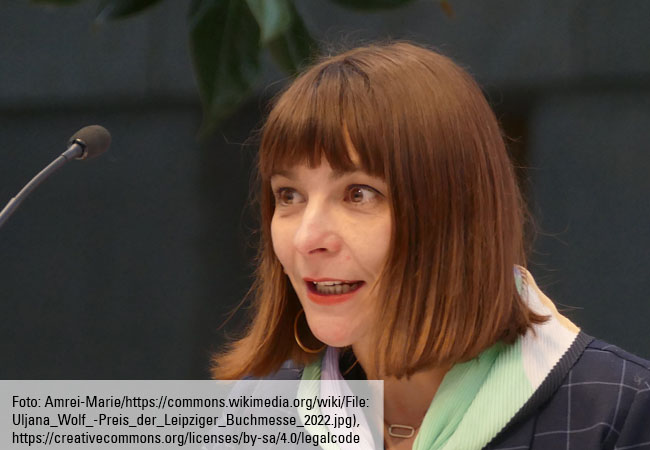
“A brilliant start,” was the joint verdict from Prof. Frederike Middelhoff and Prof. Caroline Sauter, the new lectureship’s co-organizers. Poet and translator Uljana Wolf aroused participants’ enthusiasm for her unusual approach to literary translation in the first of her two lectures, as well as in the ensuing one-day public workshop, held on November 19, 2024. Many Goethe University students also attended the first lecture given at Freies Deutsches Hochstift. Wolf’s lecture took a playful multimedia approach to how Romanticism and the U.S. comedian Buster Keaton can provide models of creative translation and a productive erroneous and/or new understanding of poetic texts. In the workshop that followed, Wolf involved the participants intensively in the translation process, including from languages neither she nor may other audience members are familiar with, or have detailed knowledge of, such as Romanian and Russian. This is also part of her translation practice – and her published works. “Uljana Wolf practices collaborative translation together with someone who speaks the language. In this process, not only semantic, but above all acoustic sensory aspects of language play an important role,” explains Frederike Middelhoff.
The new lectureship was created in memory of Monika Schoeller, a publisher and patron of literature, with support from S. Fischer Stiftung and in cooperation between Freies Deutsches Hochstift, Goethe University’s Institute of German Literature and its Didactics as well as its Institute of General and Comparative Literary Studies. It includes the possibility of inviting a translator to Frankfurt every winter semester to hold lectures and readings, workshops and seminars that examine the connections between literature and (its) translation. In this manner, the lectureship also complements the renowned Frankfurt Poetics Lectures that always take place in the summer semester. “There definitely are a lot of interfaces, and the two lecture series should be seen as complementing each other,” says Caroline Sauter. “Aris Fioretos, the most recent poetics lecturer, was also a representative of multilingual literature and translation.”
The Monika Schoeller lectureship is expected to address translation in both theory and practice. “As a researcher of the Romantic period, I’m thrilled that Uljana Wolf established a link to aspects such as Novalis’ Pollen and Fragments. Around 1800, translation was very important in literature. We’re very keen to build on the reflections on what translation actually entails and what social and cultural standing it has,” says Frederike Middelhoff. Students had an opportunity to directly apply the art of translation at the accompanying seminar, where they translated Wolf’s poems into a language familiar to them, yielding several versions, including in Portuguese, French, Russian, English and Italian.
When asked about translation using artificial intelligence, Caroline Sauter stresses, “We are certain that literary translation can hold its own against positivistic machine translation. The translation of poetry is about honing or even triggering sensitivities, about playing with moods and affects. A lot takes place in the liminal space between the original and the translation; artistic activity consists of probing and understanding this.” It is the discovery of this artistic translation that stands at the focus of the lectureship and those involved with it.
Uljana Wolf will deliver her second lecture on January 21. In addition to reading from her own texts, she will also discuss the interplay between poetry, literary theory and translation with the two Goethe University professors in a panel discussion.
January 21, 2025, 8 p.m.
Uljana Wolf. Grammargirls auf Gartenpfaden. Von Poesie, Übersetzung und den Sprachen dazwischen. Monika-Schoeller-Dozentur für literarisches Übersetzen [Grammar girls on garden paths. On poetry, translation and the languages in between. Monika Schoeller Lectureship in literary translation]
Frankfurter Bürgerverein, Holzhausenschlösschen, Justinianstrasse 5, Frankfurt
Online registration →


